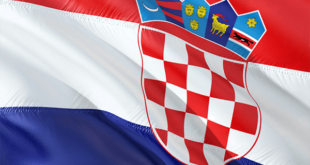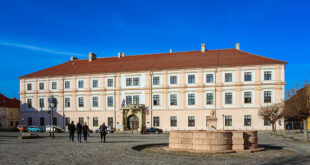One of the most compelling reasons to study abroad in Croatia is the affordability of education and living cost. And with the country becoming more and more one of the best study abroad destination choices in Europe, it’s only fair that we’ve provided insights on the study visa, living cost, tuition fees, and more. In this guide, we’ll walk you through student work in Croatia. This includes the types of student jobs, salary, regulations and internship to give you a comprehensive review of what it is like to work and study in Croatia.
Table of Contents
Overview of the Cost of Study in Croatia
One of the most appealing aspects of studying in Croatia is the affordable tuition fee and living cost. At least compared to what applies in Western Europe, US or elsewhere. This relatively young country of Southeastern Europe has slowly but surely position itself among the top countries of residence not only for foreign students but also for digital nomads (who happen to even have a special visa type tailored for them!)
And the main reason for many to choose Croatia is undeniably the affordability factor, adding up to the breathtaking landscape. For international students, it’s also the longstanding academic history of Croatia, with higher education institutions that are around for more than a century. These institutions charge tuition fees that can go as lower than 1,100 EUR per year and up to 12,000 EUR per year for medical studies.
When it comes to living cost, the average students spend on a monthly basis ranges between 400 and 700 EUR. This amount varies depending on the type of accommodation and the city in which the student chooses to settle in. Although inexpensive, students still have options to reduce even more of this amount. This can be through applying for a scholarship or grant, or through undertaking a student job while studying in Croatia.
Check here our breakdown of the cost of studying and scholarships in Croatia.
And read here about the living cost and accommodation options for students in Croatia.
Student Work in Croatia: Visa Regulations
Student visa regulations in Croatia include the possibility of part-time work for full-time students at the country’s higher education institutions. This rule applies to all international students, who therefore can work up to 20 hours per week. You can check out our complete guide on the student visa in Croatia to find out more. Usually, it’s the university’s Student Service (administered by the Student Center) that handles the employment of full-time students. This service is available in every university town in Croatia.
Those attending shorter length study programs such as exchange students or guest students don’t automatically have the right to work. They therefore need to check with their university if they can undertake occasional work and under which conditions. For those allowed to work, they must go in person at the Student Center, and fill in a registration form. Part-time work not only enables students to manage their student budget more effectively, it also gives them an opportunity to game up their language and interpersonal skills, as well as gain work experience.
Student Jobs in Croatia: Where to Start?
To find a job and start making money in Croatia, students can check with their university’s Student Service Center. Along with providing students with accommodation and meals, this service also matches students with temporary and part-time positions, connecting them with prospective employers. This service available in almost every town in Croatia caters both EU citizens and third country nationals.
When getting registration at the Student Center, students receive a membership card under the conditions that they are enrolled in a higher education institution, hold a valid resident permit in Croatia and currently have opened a bank account in the country. Exchange students are also eligible for membership, as long as they provide official documents attesting they receive higher education in Croatia.
Documents to provide to register include:
- Enrollment card and statement
- Student ID card
- ID document or passport
- Contract / certificate attesting the student has opened a giro bank account in Croatia
- 2 ID photos
- Certificate of enrollment in the ongoing academic year
Types of Student Work in Croatia for International Students
Job opportunities for students in Croatia are numerous, especially in the largest cities such as Dubrovnik and Zagreb. Also, since Croatia is one of the rare countries offering digital nomad visas, evidencing booming sectors such as IT in the country. International students therefore check that area to find a part-time job to support themselves during their study journey.
Moreover, fields such as architecture, civil engineering, foreign language education, IT engineering, mechanical engineering to name a few are in shortage of qualified employees. Students getting training in some of these fields can therefore find – if not part-time jobs – at least internship opportunities.
Additionally, students can easily find part-time jobs at their college cafeteria, library, restaurant or security. They can also make a few bucks teaching a foreign language or, if they’re graduate or postgraduate students, they can offer tutoring services to junior students. Outside campus settings, students can find part-time positions at a gas filling station, local newspaper advertisements or even do social media work.
Student Internships in Croatia
Another efficient way for an international student to get a taste of the work field in Croatia is to undertake an internship. And many colleges and universities in the country provide internships as part of their study programs. Additionally, internship conditions and requirements vary depending on whether the student is an EU or non-EU national.
EU citizens
Students from the EU are allowed to take an internship for 3 to 12 months, and can be remunerated or unpaid. They also are entitled to an internship contract, outlining the duration, goals, outcomes, training, mentorship and financial arrangements that go with the internship program. The contract also aims to ensure the intern commits to grow professionally through the internship, while safeguarded against exploitation.
The same entry conditions for study purposes apply as well. If their stay in Croatia lasts less than 3 months, they don’t need any visa. However, they need to register their stay within 30 days upon their arrival in the country. This not only serves to legalize their stay, but to give them access to services such as healthcare.
Non-EU citizens
Non-European nationals, on the other hand, need an entry visa to undergo an internship in Croatia. The rules are the same as for the student visa. A type C visa if their stay is less than 90 days, and a type D one for longer durations. Moreover, those staying in Croatia for more than 3 months need to apply for a temporary resident permit. They can do so by submitting an internship agreement, evidence of sufficient financial means and accommodation arrangements in the country.
Additionally, if the student undertakes an unpaid internship, they can still work while interning. However, they would need to apply for a separate work permit. The internship conditions should be made clear in the internship agreement. The other benefit of non-EU nationals internships in Croatia involve the possibility for students to explore further employment options or education in the country after completion of their internship.
How Much a Student Can Earn in Croatia?
To calculate the minimum net fee per hour for student work, the formula is to divide the minimum gross salary in Croatia by 160 hours. As of 2024, the minimum salary for a student in Croatia amounts 5,25 EUR/hour. Additionally, students are entitled to 50% salary increase if they work on holidays, Sunday nights and overtime. They also get reimbursement for transportation and meals cost during those times.
Moreover, foreign students working through the Student Service are entitled to a health and pension insurance coverage along with intermediary services from the Student Service. Their employers therefore should pay an additional 18% above their salary to pay for the Student Center services the student receives. And to add another layer of protection, employers who terminate a student’s contract for business reasons are not allowed to hire another student to fill the same job within the next 6 months.
Taxes Regulations on Student Work in Croatia
Students who work part-time during their studies, as well as those undergoing internships in Croatia, are to pay income taxes. The tax system that applies has lower tax brackets due to the lower earnings compared to full-time employees. Moreover, students who earn more than 8,320 EUR net per year are submitted to additional income taxation rules. And lastly, to prevent from the same income to pay tax to 2 different countries, EU workers in Croatia can claim tax credits or exemptions through DTA (Double Taxation Agreements).
Tips and Advice on Student Work and Study in Croatia
Here are a few tips and advice for student’s work in the Republic of Croatia:
For Students Looking for a Part-Time Work in Croatia
When looking for open job opportunities, start from the college premises, especially for freshman students. This can be the university’s cafeteria, library, or even through taking on administrative support work. Working on campus gives students the opportunity to meet more fellow students and know more about the university. However, it’s also possible to search for remote work in the booming IT sector.
Inquire About the Work Environment in Croatia
A good way to successfully enter the workforce while studying in Croatia is to get insight regarding it. This includes the workplace culture and regulations. Starting with the fact that work-life balance, personal development, teamwork and collaboration are important values in Croatia. That makes digitalization and flexible working hours possible and more and more prevalent in many sectors.
Furthermore, Croatia has seen an increasing number of international companies implanting in the last few years, which definitely has impacted the work culture in the country. This increases the search for skilled workers, many of them provided by the Croatian education system.
Regarding Student Internships in Croatia
When doing an internship abroad in Croatia, international students can render their stay more fulfilling through embracing the country’s workplace culture and norms. Another thing that will surely help is to be aware of the Croatian legislation regarding labor in general and student work in particular. Moreover, students can improve their daily interactions with locals by learning basic Croatian and through getting familiar with the culture.
For non-EU students, it should go without saying, but they need to make sure to have copies of all official documents. This includes their ID (usually a valid passport), their insurance coverage as well as their internship agreement.




 Aljawaz Your guide to study abroad
Aljawaz Your guide to study abroad






